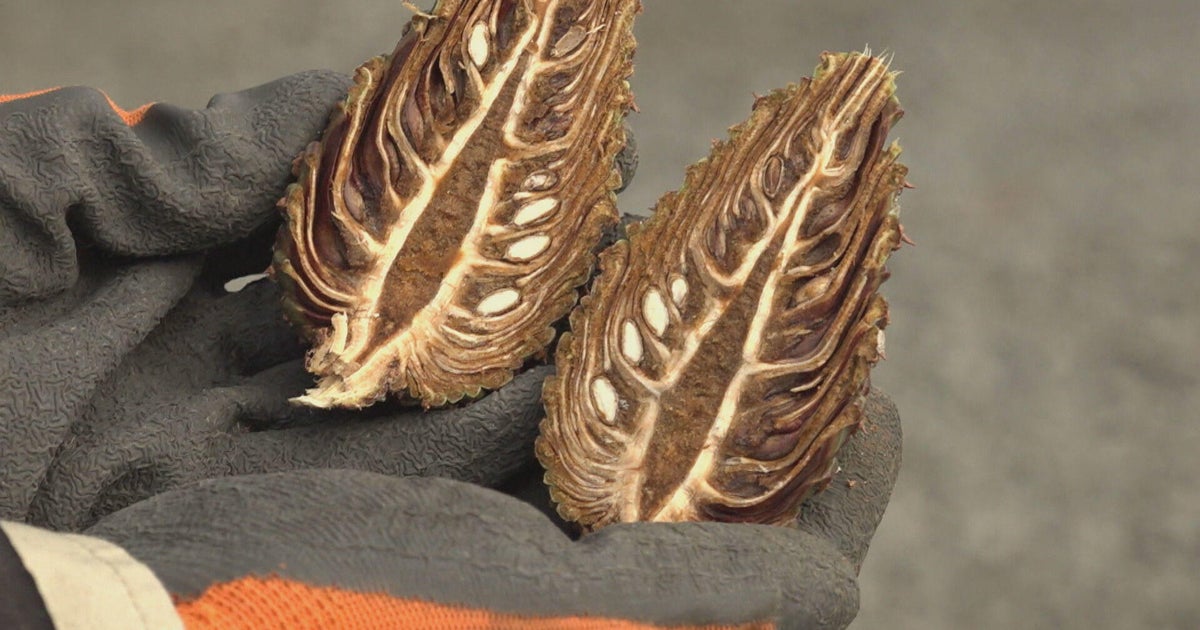Chemical recycling could be the answer to our single-use plastic problem
From the outside, a cutting-edge plant in Portland, Oregon, looks like it could be any recycling center in America. But what's happening inside is different than any other plant – and it could be a game changer for the entire industry.
Scientists are stepping up their warning about the dangers of plastic waste in our oceans in part because the plastic trash goes into the marine food chain after it washes out to sea. Recycling is only a partial solution because most products cannot be recycled.
"So with chemical recycling, we break down plastic to its core building blocks – down to the molecular level. Unlike mechanical recycling, which takes the plastic and reforms it into a usable pellet again," explained Bill Cooper, the CFO of Agilyx, a company recycling products chemically.
Most plastic we toss in a recycling bin actually can't currently be recycled – a staggering 91 percent. Anything dirty or contaminated by food usually gets sent to a landfill.
Cooper said the contamination levels in meat packaging and fish packaging don't affect their process. That means a whopping 95 percent of what goes in there can be reprocessed. It's one of only a handful of plants doing this in the United States.
Here's why it matters. A dead whale that swallowed 88 pounds of plastic was found in the Philippines earlier this month. Another washed ashore in Italy last week with almost 50 pounds of plastic in its belly. The world's oceans are becoming polluted by plastic.
"We know that more than 800 ocean animals are affected by plastics in our ocean and that almost every single sea bird on this planet has been found with plastics in its gut," said Nick Mallos, who is with the advocacy group Ocean Conservancy.
Many experts believe that dredging the ocean isn't possible and that preventing what gets into it in the first place is the only real solution. Mallos said it's also crucial that we find ways to reduce the amount of single-use plastics consumed globally.
Some states are trying to regulate a cleaner environment. In 2018, more than 30 bills in nine states proposed limiting food packaging and the use of straws. Most of them failed. California lawmaker Lorena Gonzalez wants to phase out all single-use plastics in her state by 2030.
"We end up eating these fish that have micro-plastics in them and we end up digesting them into our own bodies as well," Gonzalez said.
Plastic producers are starting to take ownership of the problem. Coca-Cola recently admitted it produces three million tons of plastic each year, reportedly more than 20 percent of the world's bottles. The company said it will create packaging made of at least 50 percent recycled material by 2030, in part using chemical recycling.
At Agilyx, there's no such thing as too much plastic. The company said almost all of it can be reused an infinite number of times. Recently, it started processing something most people thought couldn't be recycled: styrofoam. That means it can repurpose not just items like food and drink containers but also those giant pieces of styrofoam packing used for shipping big screen TVs and other electronics.
"We're taking a single-use item and we're making it poly-usable. We're making it usable multiple times over and over and over again," Agilyx's Bill Cooper said.



